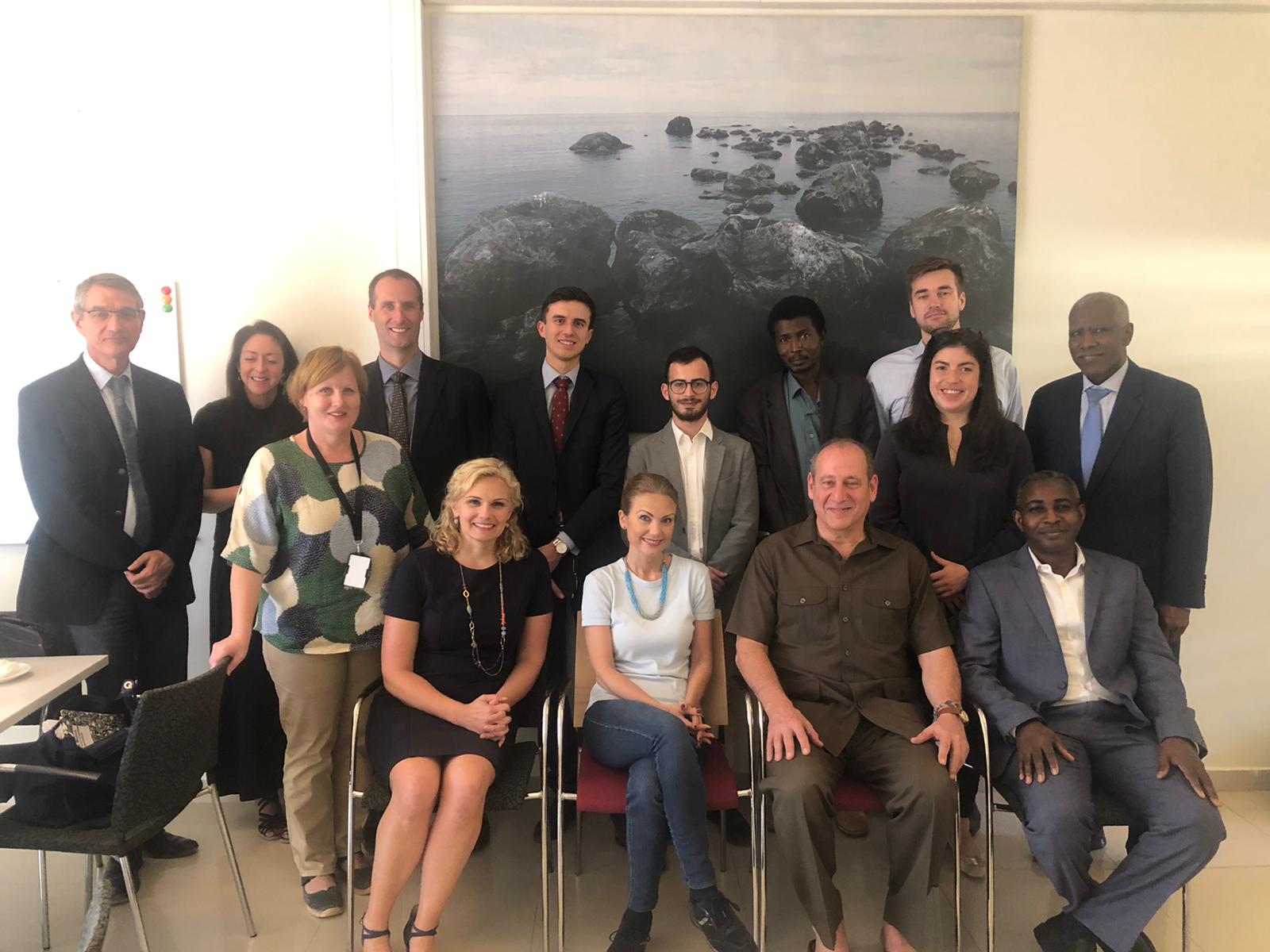
Transitional Justice in Sudan
Monday, February 17, 2020
By David L. Phillips
A delegation from Columbia University visited Sudan on 2-5 February 2020. The delegation was led by David L. Phillips (Director of the Program on Peace-building and Rights at Columbia University’s Institute for the Study of Human Rights) and included Hassan Eltigani and Mufadal Mudal. Meetings were held with Government of Sudan (GoS) officials, civil society, university representatives, bar associations, and foreign envoys posted in Khartoum to discuss transitional justice.
Sudanese hold divergent views on the meaning of transitional justice. Many Sudanese are impatient with the lack of progress establishing a transitional justice strategy and creating transitional justice mechanism many months after the revolution that overthrew President Omar al-Bashir and ended decades of his tyrannical rule. During Bashir’s reign, hundreds of thousands of Sudanese were killed in Darfur, Kordofan, Blue Nile and elsewhere. Approximately 280 persons were killed and about forty went missing during the uprising in June 2019.
After Bashir was deposed, the Transitional Military Council and Freedom and Justice Forces adopted a “transitional document” on 20 August 2019. The document called for the creation of a Transitional Justice Commission (TJC) and interim governing structures to guide Sudan from dictatorship to more democratic and accountable government. To date, however, the Supreme Council and the Council of Ministers have not finalized a bill establishing the TJC.
Within days of the delegation’s departure from Khartoum, the Transitional Council announced plans to send Bashir for trial at the International Criminal Court. Bashir’s pending trial is a big step towards holding the perpetrators of genocide, crimes against humanity and war crimes accountable for their atrocities.
Transitional justice has three interconnected and mutually supportive pillars. Accountability is critical to justice and consolidating the “new Sudan”. Successful prosecutions deliver a strong statement against impunity and demonstrate that the new government is willing and able to transition from the violent past. Prosecuting perpetrators also sends a signal that criminal acts will not be tolerated in the future. Prosecutions also deter revenge and retaliation, restoring the rule of law in a post-conflict society.
Transitional justice should seek to strengthen national institutions of justice and security, including formal and informal dispute settlement processes, while building capacity and providing technical advice and assistance. In addition, a grass-roots, or “bottom-up” approach to transitional justice should be a part of the transitional justice agenda. Local or community-based justice and reconciliation initiatives enhance the resiliency of the affected population, while strengthening the role of civil society during the period of political transition. It adopts traditional mechanisms of truth-telling, dispute settlement, and symbolic retribution that adhere to both local customs and international legal standards. The ICC is a court of last resort when national courts and unwilling or unable to hold perpetrators accountable.
Truth-telling is also a critical component. This can involve a truth commission and a history commission to expose what crimes occurred. The South Africa model linked truth and reconciliation. Amnesty was afforded to perpetrators who confessed their crimes.
Broad institutional reform is needed to consolidate the transitional justice process. Structural reform promotes integrity and legitimacy through oversight of security and government structures. Peace talks are underway with armed rebel groups. A peace agreement should include Security Sector Reform (SSR), which involves the vetting of security structures that may include removing perpetrators from office or refraining from recruiting those responsible for violating human rights. This process may also involve disbanding military, police or other security structures. It is linked with the Disarming, Demobilization and Reintegration (DDR) of ex-combatants. Elections that entrench the rule of law would represent an important step forward.
Sudan wants to stabilize its domestic conflicts and normalize international relations. The Bashir regime has been implicated in the embassy bombings in Nairobi and Dar es Alam in 1998, as well as the attack on the USS Cole in 2000. Negotiations are underway to compensate the victims. A decision by the US to remove Sudan from the list of State Sponsors of Terror would accelerate steps to consolidate political and economic reforms, making Sudan a security partner in countering violent extremism, advancing economic reform, and cracking-down on violent extremism.
Transitional justice is a process, not an event. It will take time. Sudan is trending in the right direction.
Mr. Phillips is Director of the Program on Peace-building and Rights at Columbia University’s Institute for the Study of Human Rights.





